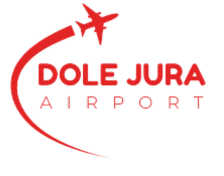What is Flight attendant? 2) “Understanding the Role of a Flight Attendant”
1) “What is a Flight Attendant?”
A flight attendant is a member of the cabin crew responsible for ensuring the safety, security, and comfort of passengers onboard an aircraft during a flight. They are trained professionals who assist passengers with various tasks including boarding, distributing safety information, serving meals and beverages, and providing assistance during emergencies or turbulence. Flight attendants also play a crucial role in enforcing airline policies and regulations to ensure a pleasant and smooth journey for everyone onboard.
2) “Understanding the Role of a Flight Attendant”
A flight attendant plays a crucial role in ensuring the safety, comfort, and well-being of passengers on board an aircraft. They are responsible for providing excellent customer service, conducting safety demonstrations, and responding to any emergency situations that may arise during a flight.
One of the main duties of a flight attendant is to greet passengers as they board the aircraft and assist them in finding their seats. They also help passengers with their carry-on luggage, ensuring that it is safely stowed in the overhead bins or under the seats. In addition, flight attendants ensure that all passengers are seated and buckled up before takeoff.
During the flight, flight attendants provide a range of services to ensure the comfort of passengers. They serve meals and beverages and offer assistance with any special dietary requirements or requests. They are also responsible for maintaining cleanliness in the cabin, including keeping the lavatories neat and well-stocked with supplies.
One of the most important roles of a flight attendant is to ensure the safety of all passengers on board. They conduct pre-flight safety briefings, demonstrating the use of emergency equipment such as seat belts, life jackets, and oxygen masks. In the event of an emergency, flight attendants must remain calm and follow established procedures to evacuate passengers quickly and safely.
Flight attendants are trained to handle various medical emergencies that may occur during a flight, such as administering first aid or performing CPR. They also have the knowledge to deal with disruptive passengers and will liaise with the captain and other crew members to handle such situations appropriately.
Effective communication and interpersonal skills are vital for flight attendants. They must be able to effectively communicate with passengers, understand their needs, and provide suitable assistance. Flight attendants must maintain a professional and positive attitude, even when faced with challenging situations.
In summary, the role of a flight attendant involves ensuring passenger safety, providing excellent customer service, and maintaining a comfortable and pleasant environment throughout the flight. Their responsibilities include conducting safety demonstrations, attending to passenger needs, and handling emergency situations efficiently.
3) “Exploring the Duties of a Flight Attendant”
Flight attendants play a critical role in ensuring the safety and comfort of airline passengers. Their duties go beyond serving meals and drinks, as they are responsible for various tasks before, during, and after a flight. Here, we will explore some of the key responsibilities and duties of a flight attendant.
First and foremost, flight attendants are responsible for conducting pre-flight inspections. This involves checking the cabin to ensure it is clean and well-stocked with necessary supplies such as emergency equipment, food, and beverages. They also ensure that all safety features, including seat belts and life jackets, are functioning properly.
During the flight, flight attendants must maintain a high level of situational awareness. They monitor the cabin for any safety hazards, turbulence, or passenger concerns. In the event of an emergency, flight attendants are trained to evacuate passengers, administer first aid, and provide assistance as needed.
In addition to safety responsibilities, flight attendants are also responsible for providing excellent customer service. They greet passengers as they board the aircraft, assist with finding seats and storing carry-on luggage, and provide information regarding safety procedures and flight details. They also serve meals, snacks, and beverages throughout the flight, accommodating any special dietary requirements or requests.
Furthermore, flight attendants act as a point of contact for passengers. They address any concerns or queries, handle complaints, and ensure that passenger comfort is maintained throughout the flight. They may also assist passengers with medical conditions, disabilities, or unaccompanied minors, ensuring their specific needs are met.
After the flight, flight attendants conduct post-flight duties. This includes ensuring the cabin is clean and tidy for the next flight, restocking supplies, and completing necessary paperwork and reports regarding any incidents or concerns that occurred during the flight.
It’s important to note that flight attendants must adhere to all airline regulations and safety protocols. They must stay up to date with emergency procedures, attend regular training sessions, and undergo periodic evaluations.
In conclusion, the duties of a flight attendant are multifaceted and require a high level of professionalism, customer service, and safety preparedness. They are responsible for ensuring the comfort and well-being of passengers while maintaining a safe and secure cabin environment.
